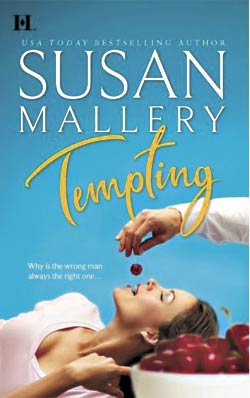The Web site of the Greater Seattle Romance Writers of America says it all: “As a writer, monthly meetings are the best way to pump yourself up and become reacquainted with the Muse.”
Shoreline Public Library’s meeting room was the site of the group’s May rendezvous, surrounded by posters in which Orlando Bloom, Margaret Cho, and Bill Gates implored onlookers to READ. There, 22 white women came to share writings and “any good news or bad news in our craft or career,” according to GSRWA President Heather Davis. “You get chocolate for either!” she said. “Sagging Middles” was the topic for the day’s meeting—a discussion on the tendency of plots to sag halfway through.
(Yes, there was one man at the meeting. Steve arrived over an hour late with a McDonald’s cup and sat in the back, where he restlessly rustled through his papers until one woman turned around and gave him an evil eye, accompanied by a “shush.”)
According to Nielsen BookScan’s most recent (2006) figures, romance comprises 15.9 percent of all fiction sold. And those figures don’t include sales at Wal-Mart or Sam’s Club—akin to bypassing airport bookstores when calculating sales of Forbes or John Grisham titles.
Mukilteo-based Susan Mallery alone has published 13 titles since May 2006, and has four new titles scheduled for 2008. Her work ethic reads like something straight out of Managers-on-Meth Daily: After completing the plotting process and a 35- to 40-page outline, she says, she writes 20 pages a day until she finishes the manuscript.
Why do many romance writers use pseudonyms? “People have different reasons,” says Mallery, whose real last name is Macias. “Their ‘day job’ may not be compatible with what they do. I use one because when I first sold to Harlequin, they required it. Now I’m really happy about it. I keep my writing life and my personal life separate. It works out well in our current climate of all kinds of personal info being available online.”
Mallery is an exception in the group. Of the 100-plus members of GSRWA, 21 of them are publishing books in the next year, according to the group’s Web site.
When asked if members ever use the number of books published in a given year to gauge how well they are doing, GSRWA President Davis demurs. “That implies a sort of factorylike mentality,” she says, noting that one GSRWA member, Jenny Gardiner, wrote for 12 years before getting published. Gardiner’s Sleeping With Ward Cleaver won last month’s “American Title,” an American Idol–style publishing contest sponsored by Romantic Times. “It’s more about motivation,” she says.
“If you want to learn how to be a working writer,” says Davis, “this is the place to be.”








